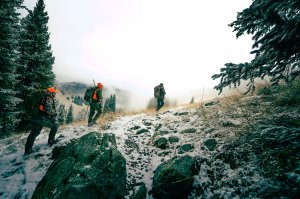The Michigan Department of Natural Resources is electrofishing the Muskegon River to collect walleye eggs and milt for hatchery use. Many of the state’s rivers and lakes, including Lake Michigan, depend on the Muskegon’s walleye egg production to maintain healthy stocks of the popular gamefish.
The Muskegon River’s spring walleye run is typically around 40,000 to 50,000 fish, and the DNR plans to strip milt and eggs from roughly 350 adult walleyes. Most of these fish will be returned to the river, but several dozen will be kept for fish health analysis by Michigan State University.
“This adult population consists of mostly stocked fish,” DNR fisheries technician supervisor Ed Pearce explained in a recent press release. “The Muskegon River has the largest run of walleye in the Lake Michigan watershed south of Green Bay.”
The agency plans to collect around 24 million eggs from the Muskegon. These eggs will be fertilized and reared as fry in hatchery ponds until they reach fingerling size (1.5 to 2.5 inches). From there, they will be stocked in lakes and rivers throughout the Lower Peninsula from late spring through the summer.
The DNR began electrofishing this week and will continue through early April. Actual egg/milt collection days depends on water temperature, weather conditions, and the presence of ripe walleyes, according to the agency. They will concentrate their efforts between Croton Dam and the Muskegon’s Pine Street access, but if additional eggs and milt are needed, they will continue downstream to the access site at Thornapple Street.
State fisheries officials request that anglers and others avoid electrofishing activities for safety reasons. All wading anglers are asked to exit the water when biologists are working an area. This is for their own protection, and it helps ensure the most efficient collection process.


